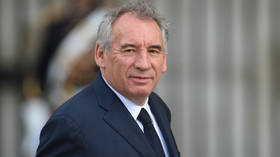Grain tariffs up: Russian consumers win, exporters lose
The Russian government has increased grain export tariffs from 10 to 40 per cent to force wheat and barley producers to sell more at home. The fourfold increase follows a consumer outcry after double digit price increases.
It comes as a body blow to Russian exporters, who’ve just wowed foreign investors at the world’s biggest agriculture fair in Berlin.
Russian food exporters stole the show at the World Food Fair with the largest exhibition, and record attendance figures.
Private producers and regional governments are splashing out to advertise their food abroad. But a snap test revealed just how far they had to go, with foreigners’ general knowledge limited to the most basic products.
At the fair, Agriculture Minister Aleksey Gordeev told RT the entire industry had effectively missed a decade of progress. But some believe this opens up unique opportunities.
“Food quality, not marketing, is our number one business concern. We’ve started negotiations today with our German colleagues to learn from their experience of producing organic food. We believe this sector has huge untapped demand,” Aleksey Gordeev said.
Russia’s agriculture industry remains one of the most heavily state-regulated in Europe. Experts say the government can use that power to block the free market with tariffs, or direct its current wealth to push through innovations like organics and build on its reputation for healthy, chemical-free food.













